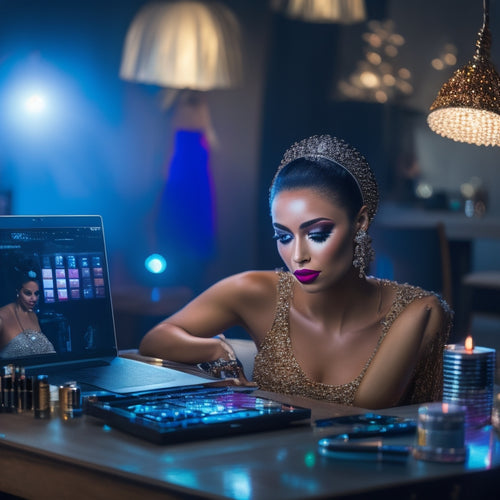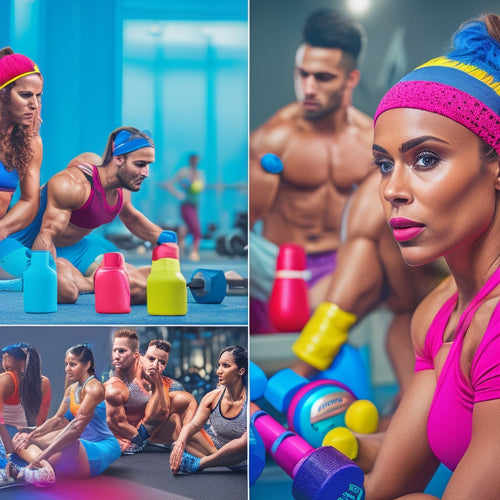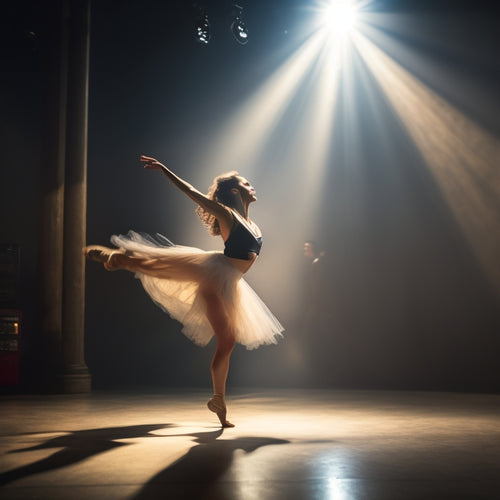
Inclusive Stage Makeup Revolutionizes Theatre Training
Share
Inclusive stage makeup is revolutionizing traditional theatre training by dismantling the industry's long-standing bias towards Caucasians, providing a more diverse and all-encompassing approach to stage makeup that accurately represents the complexity of human skin tones and hair textures. This shift acknowledges the lack of diversity in traditional training, which has resulted in a dearth of equity. New techniques are being developed, and experts are being hired to cater to diverse skin tones and hair textures. As the inclusive stage makeup movement continues to evolve, it's poised to break cultural barriers and reach a global audience, empowering a new generation of theatre professionals with the skills to accurately represent the world's diverse population.
Key Takeaways
• Inclusive stage makeup training addresses the lack of diversity in traditional programs, catering to diverse skin tones and hair textures.
• Expert-led workshops and focus groups develop techniques for a diverse kit, ensuring students from all backgrounds are adequately equipped.
• New makeup products are tested to ensure inclusivity, and filmed modules are created to integrate into Stage Makeup protocols, enhancing industry readiness.
• The inclusive program aims to reach 1000+ learners from 50+ countries, offering courses in 5 languages to break cultural barriers and promote global accessibility.
• By sharing knowledge and lessons, the program establishes a community of practice, refining online courses and tracking progress for continuous improvement.
Rethinking Traditional Theatre Training
Traditional theatrical makeup training has historically catered to Caucasian skin tones and hair textures, perpetuating a lack of diversity and inclusivity in the industry. This limited approach has resulted in a dearth of equity in training, where students from diverse backgrounds are not adequately equipped to work with various skin tones and hair textures.
The pandemic has presented an opportunity for reflection, prompting a re-examination of the traditional theatrical makeup training paradigm. To address this issue, there is a growing need to incorporate diversity in techniques, ensuring that all students receive thorough training in makeup and hair design for diverse skin tones and textures.
Objectives for Inclusive Makeup
To establish a thorough foundation for inclusive stage makeup, it is necessary to define specific objectives that address the disparities in traditional theatrical makeup training.
The primary objectives for inclusive makeup involve:
- Hiring experts to teach workshops on diverse skin tones and hair textures.
- Testing new makeup products for a diverse kit.
- Creating focus groups to evaluate initial workshops.
Additionally, filming workshop modules will enable training for all performance and design majors. These objectives aim to provide students with new techniques and diverse representation in stage makeup, ultimately bridging the gap in traditional training.
Achievements and Milestones Reached
Several key milestones have been reached in the pursuit of developing inclusive stage makeup training. This includes a thorough examination of current makeup and hair syllabi and department protocols. Significantly, new makeup products have been tested for diverse skin tones, and experts have been engaged for test filming sessions.
The project has also finalized course content for filming makeup and hair modules, leading inclusive workshops that will be filmed by makeup and hair experts. These achievements demonstrate the project's commitment to diversity training and inclusive practices.
The filmed modules will integrate into Stage Makeup protocols, providing a valuable resource for students and educators alike.
Expanding Reach and Impact
Through its forthcoming Massive Open Online Course (MOOC) launch, the inclusive stage makeup project is poised to transcend departmental boundaries, extending its impact beyond the university's performance and design majors to a global audience. This expansion will enable learners from diverse backgrounds to access equitable makeup training, fostering a more inclusive theatre industry.
| Global Reach | Impact |
|---|---|
| 1000+ learners expected | Diverse makeup skills for all skin tones |
| 50+ countries targeted | Breaking down cultural barriers |
| 5 languages available | Accessibility for global learners |
| Partnerships with theatre companies | Industry-ready skills for graduates |
| Quarterly progress tracking | Continuous improvement and adaptation |
The MOOC's expansive reach will drive progress in the theatre industry, promoting diversity, equity, and inclusion. By democratizing access to inclusive stage makeup training, we can create a more representative and inclusive theatrical landscape.
Sharing Knowledge and Lessons
By reflecting on the project's successes and challenges, we can distill valuable lessons and best practices for implementing inclusive stage makeup training in educational institutions and theatre companies.
The lessons learned from this project highlight the importance of collaboration, adaptability, and a willingness to listen and learn from diverse perspectives.
As we move forward, our future plans involve refining the online module courses to guarantee they remain relevant and effective in meeting the needs of students and industry professionals.
We also plan to establish a community of practice, where educators and practitioners can share their experiences, ask questions, and provide feedback, ultimately contributing to the growth and development of inclusive stage makeup training.
Frequently Asked Questions
Will the MOOC Be Available for Non-University Learners?
The MOOC will indeed be accessible to non-university learners, providing unprecedented outreach opportunities for diverse individuals to acquire inclusive stage makeup skills, fostering a more equitable and representative theatre industry.
How Will the Course Ensure Continued Relevance and Updates?
To maintain continued relevance and updates, the course will incorporate continuous improvement through regular industry feedback, staying abreast of emerging trends and product developments, and periodic expert-led workshops to refine content and pedagogy.
Are There Plans for In-Person Workshops or Only Online Modules?
The course will offer a hybrid approach, incorporating both online modules and in-person workshops, allowing students to engage with diverse makeup and hair skills through flexible and interactive learning experiences.
Can the Course Be Adapted for Other Performance Disciplines?
As the curtain rises on diverse performance art, the adaptability of this course shines bright, with its versatile makeup techniques poised to transcend theatrical boundaries, illuminating a vast spectrum of artistic expressions.
Will the Project Provide Opportunities for Certification or Credit?
The project envisions providing certification opportunities for students upon completing the inclusive stage makeup module, as well as exploring academic credit opportunities for those who demonstrate proficiency in diverse makeup and hair skills.
Related Posts
-

5 Essential Tips for Online Dance Makeup Success
You're about to discover the secrets to a thriving online dance makeup presence. First, establish a strong online fou...
-

Top Performance Headbands for Fitness Enthusiasts
When you're looking for top performance headbands, focus on options that combine advanced moisture-wicking fabrics wi...
-

Mastering Dance Photography: Expert Tips and Techniques
You're about to excel in dance photography, a challenging field where only a few succeed. To join the elite 10%, you'...


